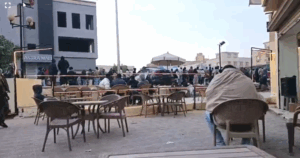ICC to rule over South Africa’s failure to arrest indicted Sudanese president
The International Criminal Court (ICC) in The Hague is expected to rule over South Africa’s failure to arrest President Omar Al Bashir within three weeks.
The International Criminal Court (ICC) in The Hague is expected to rule over South Africa’s failure to arrest President Omar Al Bashir within three weeks.
In June 2015, the Sudanese president travelled to South Africa to visit an AU summit. He decided to return to Sudan on the second day of the meetings to evade arrest.
South Africa as a signatory to the ICC’s Rome Statute should have carried out the arrest warrants for Al Bashir, issued by the tribunal in 2009 and 2010, on the basis of five counts of crimes against humanity, two counts of war crimes, and three counts of genocide.
The ICC does not have a police force and it depends on member states to arrest and hand over wanted suspects. The charges are opposed by the AU, the Arab League, Russia, and China.
After his arrival in Johannesburg, a South African provincial court ordered that the indicted Sudanese president had to remain in the country while judges deliberated on his arrest.
The court ruled that Al Bashir should indeed be arrested, but at that time he had already left aboard his aircraft via a military airport. A day later, the High Court in Pretoria refuted the ruling, and concluded that the South African government granted immunity to Al Bashir by inviting him for the AU summit.
In a statement on Friday, the ICC said South Africa’s prosecutor and representatives have been invited to attend the ruling about the case scheduled to take place on 6 July. The ruling follows a hearing in April, where South Africa explained why it did not break its obligations to the tribunal.
Sudan has not signed the Rome Statute and argues that the ICC therefore does not have a right to execute a warrant. Al Bashir has denied the charges against him, and continues to travel to various countries with impunity. Recently, he returned to Khartoum from Jordan, another ICC member, where he attended the 28th summit of the Arab League.
Earlier this month, ICC prosecutor Fatou Bensouda, presenting her 25th report on the situation in Darfur to the UN Security Council, urged the members “to take concrete action and help deliver justice to the victims of the crimes committed in Darfur” by arresting the indicted president.











 and then
and then